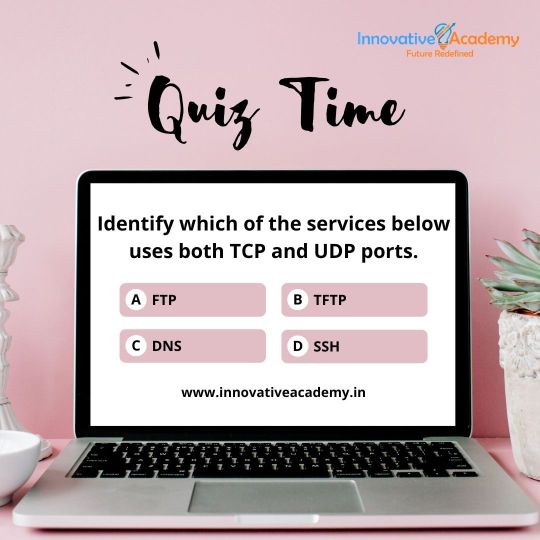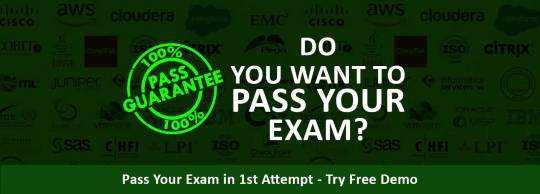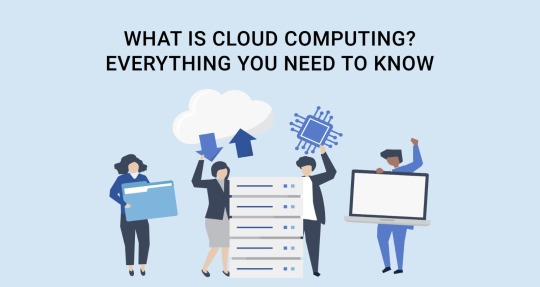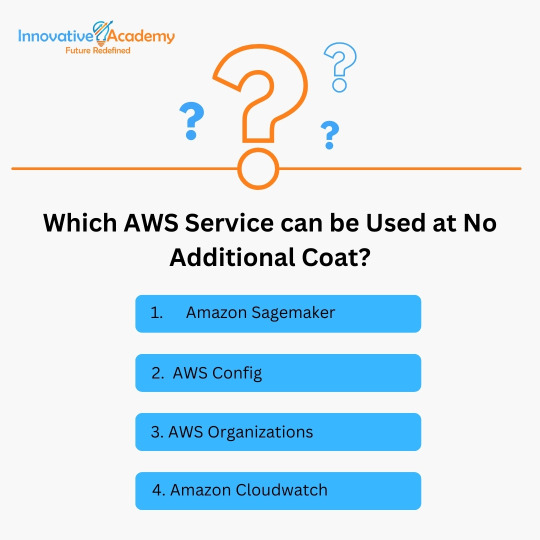#GCP networking
Text
Google Cloud Platform: A Comprehensive Comparison with AWS and Azure
Unlock the power of Google Cloud Platform 🚀 Explore superior BigQuery analytics, advanced networking, and seamless hybrid cloud with Anthos. #GCP #CloudComputing #TechInnovation
The landscape of cloud computing is a constantly evolving and competitive one, with various platforms vying for attention and dominance. Among these contenders, Google Cloud Platform (GCP) stands out for its unique blend of innovative features and services. This distinguished platform offers a wealth of capabilities that set it apart from industry giants like AWS and Azure. This blog seeks to…

View On WordPress
#Anthos hybrid cloud#BigQuery performance#GCP advantages#GCP networking#GCP pricing#GCP security#GCP vs AWS vs Azure#global load balancing#google cloud platform#Kubernetes on GCP#machine learning on GCP#open source on GCP
1 note
·
View note
Text
Running a uPlexa Node: Empowering Decentralization and Efficiency
What is a Node?
Photo by Merlin Lightpainting on Pexels.com
In the world of cryptocurrencies and blockchain technology, a node refers to a computer that participates in the network of a particular blockchain. Nodes are crucial components of a decentralized system, as they store, verify, and propagate the blockchain’s data. Every time a transaction is made or a new block is added, nodes across…

View On WordPress
#blockchain security#cryptocurrency nodes#decentralized networks#GCP node setup#Linux nodes#privacy coins#uPlexa
0 notes
Text

Quiz Time
Visit: https://innovativeacademy.in
Call us: +91 8447712333
#InnovativeAcademy#microsoftcertifications#linux#linuxcertifications#cloudcomputing#awscloud#ccnacertifications#cybersecurity#coding#developer#RedHatTraining#redhatlinux#machinelearning#bigdata#googlecloud#iot#software#java#awstraining#ccna#javascript#gcp#security#CCNAQuiz#CISCO#Network#Microsoft#itcourses#quiz
0 notes
Text
Certification Exam Center | PMP CISA CISM Oracle CCNA AWS GCP Azure ITIL Salesforce Institute in Pune

The Certification Exam Center in Pune offers a range of certification exams for professionals in the IT industry. These certifications are highly valued and recognized worldwide, and passing them can significantly enhance one's career prospects. The center offers exams for a variety of certifications, including PMP, CISA, CISM, Oracle, CCNA, AWS, GCP, Azure, ITIL, and Salesforce Institute. The center provides a convenient and comfortable environment for taking the exams. It has state-of-the-art facilities and equipment to ensure that candidates have a smooth and hassle-free experience during the exam. The exam rooms are spacious and well-lit, with comfortable seating arrangements and noise-cancelling headphones to help candidates.
Visit: https://www.certificationscenter.com/top-certifications
Address: SR N 48, OFFICE NUMBER 009 1ST FLOOR, EXAM CENTER, CERTIFICATION, Lane No. 4, Sai Nagari, Mathura Nagar, Wadgaon Sheri, Pune, Maharashtra 411014
Business Phone: 91020 02147
Business Category: Software Training Institute
Business Hours: 8am-8pm Monday to Sunday
Business Email: [email protected]
Payment Method: Paypal, Local Bank Wire Transfer
Social links:
https://www.facebook.com/certificationscenter
https://twitter.com/cert_center
https://www.youtube.com/@certificationcenter
https://www.linkedin.com/company/it-certification-exam-and-preparation-center
#Linux Training#Aws Training#Cyber security Training#Ethical Hacking Training#RHLS Cost#DevOps Training#Azure Training#RHCSA Training#OpenShift Training#Networking Training#CCNA Training#CEH Training#GCP Training#Cloud Security Training#OSCP Training
1 note
·
View note
Link
As organizations continue to grow and expand their IT infrastructure and applications, they face the challenge of selecting the best cloud computing solution to meet their specific needs. One of the most popular options for enterprises is the multi and hybrid cloud solution, which allows businesses to leverage the benefits of both private and public cloud environments.
#cloud computing#cloud#aws#gcp#azure#it services#data security#software#Software Development"#cloud solutions#Tudiptechnologies#tudip#networking#data
0 notes
Text
Google Cloud Platform Training | Cloud Computing
https://sunshinelearning.in/courses/gcp/
Google Cloud Platform Training - Learn Google Cloud, and pass your certification exam Connect Sunshine Learning. Start a free trial today!
0 notes
Text

An Introduction to GCP Pricing: Understanding the Basics
Google Cloud Platform (GCP) is one of the leading cloud computing platforms in the world, offering a wide range of services such as compute, storage, networking, and security, among others. With Economize, you can easily calculate GCP pricing for your business to efficiently manage expenses. Contact us now!
#GCP Pricing#Google Cloud Platform pricing#gcp#googlecloud#google cloud services#google#cloud services#cloud services online
2 notes
·
View notes
Text
What is Cloud Computing? Everything You Need to Know

Cloud computing has become a ubiquitous term in the world of technology and business. While it has been around for a few years now, it still continues to be a hot topic among IT experts and companies alike. This is because cloud computing has become an essential part of modern business operations and has revolutionized the way organizations operate.
Cloud computing refers to the delivery of computing services, including servers, storage, databases, software, analytics, and more, over the internet (“the cloud”) on a pay-per-use basis. In cloud computing, a user can access computing resources from a remote location instead of having to manage or maintain their own IT infrastructure.
The cloud is typically classified into three types of services: Infrastructure as a Service (IaaS), Platform as a Service (PaaS), and Software as a Service (SaaS).
1. Software as a Service (SaaS)
Software as a Service (SaaS) is a cloud computing service that has become increasingly popular among businesses. It enables companies to access application software and databases without having to worry about the maintenance and management of infrastructure. This responsibility lies with a third-party provider who will install, license, and maintain the hardware and software required to make it accessible to end-users through the internet.
With SaaS, businesses no longer need to invest in expensive hardware or software licenses, as they can simply access what they need on-demand, on a subscription basis. This provides businesses with increased flexibility and scalability, allowing them to scale their operations up or down as needed, without having to worry about maintaining the infrastructure required to support their operations.
2. Platform as a Service (PaaS):
It is a cloud computi ng service that offers businesses the ability to configure the settings for the application-hosting environment without affecting the underlying infrastructure, such as the network, servers, operating systems, or storage. This allows businesses to have more control over their applications and to customize their environment to meet their specific needs.
PaaS providers offer a wide range of services to businesses, such as development tools, database management, and middleware. This provides businesses with the ability to customize their environment to meet their specific needs, without having to invest in expensive hardware or software.
3. Infrastructure as a Service (IaaS):
is a cloud computing service that allows businesses to outsource the delivery of computer infrastructure to support their internal business processes. This service model offers businesses the greatest degree of flexibility, allowing them to access the fundamental virtualized IT functions they need without having to worry about the underlying infrastructure required to support their operations.
One of the key advantages of IaaS is that it provides businesses with a high degree of flexibility, allowing them to customize their infrastructure to meet their specific needs. This not only provides businesses with a competitive advantage but also allows them to focus on their core competencies, such as innovation and customer service.
Cloud computing offers numerous benefits, including increased flexibility and scalability, reduced infrastructure costs, and improved security and reliability. Cloud computing also enables businesses to quickly deploy new applications and services, collaborate more easily, and access powerful computing resources on demand.
Some of the popular cloud computing providers include Amazon Web Services (AWS), Microsoft Azure, Google Cloud Platform (GCP), and IBM Cloud. These providers offer a wide range of services and pricing options to meet the needs of various businesses and industries.
Private, Public and Hybrid Cloud
When it comes to cloud computing, businesses have a choice between three deployment strategies: private, public, and hybrid. Each model provides customers with access to their business-critical documents and software from any location, at any time. However, the right choice of a cloud deployment model for your business depends on several factors such as scalability, cost-effectiveness, data storage, transmission, etc.
Private Cloud
Private clouds are a cloud computing deployment model that serves a single entity, providing greater control and security over data and applications. Some companies choose to build and manage their own private cloud environments, while others rely on service providers to do so.
In some industries, such as healthcare and finance, strict regulations govern the handling of sensitive data. For these organizations, private clouds provide a necessary level of control and security, allowing them to meet compliance requirements and maintain the privacy of their customer’s data.
Public Cloud
Public clouds are a type of cloud computing deployment model that is hosted by cloud service providers and distributed across the open internet. This model enables customers to avoid the cost and hassle of buying, operating, and maintaining their own IT infrastructure by utilizing the services provided by the cloud service provider.
Moreover, public clouds offer a high level of scalability and flexibility, allowing businesses to quickly and easily scale their computing resources up or down as needed. This is particularly useful for businesses with fluctuating computing demands or those that experience spikes in traffic or workload.
Hybrid Cloud
Hybrid clouds are a type of cloud computing deployment model that combines one or more public clouds with private clouds. This approach allows organizations to leverage the benefits of both deployment models while addressing specific business needs and requirements.
By using a hybrid cloud, companies can keep sensitive data on a private cloud while leveraging the scalability and cost savings of a public cloud for less sensitive applications. For example, an organization may want to keep its legally required data on a private cloud, while hosting its CRM system on a public cloud for ease of access and scalability.
Selecting A Trustworthy Cloud Computing Service Provider
When it comes to selecting a cloud computing service provider, it’s crucial to pick the right model or service that suits your business requirements. With numerous cloud computing options available, you should consider the different services that fit your daily business operations and complement each other.
Selecting a cloud service provider can be challenging, and your decision should be based on your immediate and long-term business objectives. Furthermore, you should ensure that the transition to the cloud is seamless, with minimal disruption and cost to your organization.
In this regard, it is worth mentioning that Versatile Mobitech can be an excellent choice. The company offers a range of cloud computing solutions that are tailored to meet the unique needs of businesses of all sizes. Whether you need infrastructure as a service (IaaS), platform as a service (PaaS), or software as a service (SaaS), Versatile Mobitech can help you select the right cloud computing model to suit your business objectives.
The Versatile Mobitech team of cloud computing experts can provide you with comprehensive guidance on how to integrate cloud computing into your daily operations, and ensure that the transition is as smooth as possible. With their expertise and experience, you can rest assured that you are in good hands when it comes to choosing the right cloud computing solution for your business.
#cloud computing services#cloud computing#mobile app developers in hyderabad#mobileapplication development#cloud services
5 notes
·
View notes
Text
Introduction to Prometheus MasterClass: Infra Monitoring & Alerting

Prometheus MasterClass: Infra Monitoring & Alerting is an essential course for anyone looking to dive deep into infrastructure monitoring and alerting with Prometheus. In today's ever-evolving tech landscape, keeping a keen eye on your systems is crucial. With constant changes and high demands on performance, monitoring is more than just an operational necessity—it’s a strategic tool to ensure reliability, security, and smooth functioning of systems.
What is Prometheus?
Prometheus is an open-source monitoring and alerting tool designed for reliability and scalability. Initially developed by SoundCloud, Prometheus has grown to become one of the most popular choices for system monitoring, especially in cloud environments. The tool is perfect for tracking system health, collecting performance data, and triggering alerts when things go wrong.
Why Learn Prometheus?
Let’s face it—infrastructure monitoring is no longer just a nice-to-have; it’s a must-have for businesses. With the growth of cloud computing and the rise of containerized applications like Docker and Kubernetes, systems are becoming more complex. When systems fail, even for a few minutes, it can lead to massive losses, from revenue to customer trust. Prometheus helps avoid this by enabling real-time monitoring and alerting, which gives you the ability to identify and fix issues before they spiral out of control.
In this Prometheus MasterClass: Infra Monitoring & Alerting, you'll be guided through setting up and using Prometheus for effective system monitoring, as well as integrating it with Grafana for data visualization and setting up powerful alerting mechanisms.
Key Features of Prometheus
Multi-Dimensional Data Model: Prometheus’s core strength is its ability to model time series data with multiple dimensions. This allows you to filter and aggregate data in real-time, which is crucial for quick and effective troubleshooting.
Customizable Alerts: With Prometheus Alertmanager, you can set up highly customizable alerts based on thresholds and other metrics that matter most to your infrastructure.
Scalability: Whether you are monitoring a few services or thousands of nodes, Prometheus can handle it, thanks to its horizontally scalable design.
Pull-based Model: Unlike many other monitoring systems that rely on pushing data, Prometheus pulls data from configured endpoints, which makes it more resilient to intermittent network issues.
PromQL: The Prometheus Query Language (PromQL) is a flexible, powerful query language that helps you extract precise metrics in real-time, making it easy to set up efficient alerts and dashboards.
Monitoring Cloud Infrastructure
With the rise of cloud-native architectures and services like Amazon Web Services (AWS), Google Cloud Platform (GCP), and Microsoft Azure, the need for real-time monitoring has grown exponentially. Prometheus is designed to easily integrate with cloud and microservices environments. From Kubernetes clusters to individual EC2 instances, Prometheus can monitor almost anything.
Integrating Prometheus with Grafana
While Prometheus is excellent at collecting and storing metrics, it lacks in terms of data visualization. That’s where Grafana steps in. Grafana allows you to create highly customizable and visually appealing dashboards to view your Prometheus data in real time. Together, they form a powerful combo for infrastructure monitoring.
Alerts That Matter
Not all alerts are created equal. Setting up alerts that focus on the right metrics—such as CPU utilization, memory leaks, or service availability—is crucial to avoiding alert fatigue. In this Prometheus MasterClass, you'll learn how to configure Alertmanager to trigger the right type of alerts at the right time, and even how to integrate it with communication platforms like Slack or PagerDuty for real-time notifications.
Why You Need Prometheus for Monitoring?
One of the biggest challenges in today’s tech industry is maintaining system reliability. Downtime, system crashes, or unexpected failures can result in serious consequences for your business. Prometheus ensures that you can prevent these problems before they affect your users. Here’s how:
Proactive Monitoring: Get ahead of problems before they affect your users.
Improved Performance: With real-time metrics, you can optimize system performance.
Cost Efficiency: Reduce downtime and avoid costly system failures.
Setting Up Prometheus in Kubernetes
One of the most popular use cases for Prometheus is its integration with Kubernetes. In Kubernetes environments, Prometheus monitors all components—from pods and services to nodes and applications. It’s a must-have tool if you’re running large-scale, containerized applications that require 24/7 monitoring.
Setting up Prometheus in Kubernetes is surprisingly simple. Using the Prometheus Operator, you can automate the setup process, allowing you to focus on fine-tuning your metrics collection and alerting strategies.
Real-World Use Cases of Prometheus
Netflix: The Streaming Giant
Netflix uses Prometheus to monitor its sprawling cloud infrastructure, ensuring uptime and system availability for its millions of global users. By setting up custom alerts and using Prometheus with Grafana, Netflix has dramatically reduced downtime.
DigitalOcean: The Cloud Provider
DigitalOcean uses Prometheus to monitor its entire cloud environment, including compute resources and databases. Prometheus’s pull-based data model allows the company to efficiently monitor system health and resolve issues before they become customer problems.
PAP Meaning in Monitoring Context
You might be wondering, what does PAP stand for in monitoring? PAP stands for Policy Administration Point. It is a crucial concept in access control systems where it serves as the component responsible for managing policies. In the context of infrastructure monitoring, PAP plays a role in ensuring that certain policies—such as alert thresholds and access permissions—are adhered to, thereby enhancing the security and reliability of your system.
Why Alert Fatigue is a Big Deal
One of the hidden dangers of infrastructure monitoring is alert fatigue. When you set up too many alerts, especially for low-priority issues, your team becomes desensitized. This can result in them missing critical alerts. Learning how to set up meaningful alerts with Prometheus Alertmanager is crucial for avoiding this trap.
Best Practices for Prometheus Monitoring
Start with Critical Metrics: Focus on the most important metrics like CPU usage, memory leaks, and service uptime.
Set Proper Alert Thresholds: Don’t be too aggressive with alert thresholds; instead, use historical data to set realistic limits.
Use Grafana for Visualization: Create dashboards for easy monitoring and visualization of your key metrics.
Prometheus vs Other Monitoring Tools
When it comes to monitoring, Prometheus is often compared to other tools like Nagios, Zabbix, or even newer tools like Datadog and New Relic. While these tools are excellent in their own right, Prometheus stands out for its open-source nature, scalability, and deep integration with modern systems like Kubernetes.
Nagios: Focuses more on system-level monitoring.
Zabbix: More suited for network and server monitoring.
Datadog and New Relic: Commercial, SaaS-based monitoring tools that offer additional features but come at a cost.
Prometheus offers an open-source, flexible alternative that can scale with your infrastructure and doesn’t lock you into a commercial product ecosystem.
Conclusion: Take Your Monitoring to the Next Level
Whether you're running a small startup or managing a large-scale enterprise infrastructure, Prometheus offers a powerful, flexible, and scalable solution for infrastructure monitoring and alerting. This Prometheus MasterClass: Infra Monitoring & Alerting will guide you through every aspect of setting up, using, and optimizing Prometheus for your unique needs.
Monitoring is not just about preventing disasters; it's about improving your infrastructure’s performance and ensuring your systems remain reliable and efficient. So, why wait? Take control of your infrastructure monitoring today with Prometheus!
0 notes
Text
Cloud Computing Courses & Training – SkillUp Online

Cloud computing has revolutionized the way businesses and individuals access, store, and manage data. As industries increasingly shift towards cloud-based systems, the demand for professionals with cloud computing expertise continues to rise. SkillUp Online offers a range of comprehensive cloud computing courses and training programs designed to help individuals develop the skills necessary to thrive in this evolving landscape. In this article, we will explore the various cloud computing courses offered by SkillUp Online, the benefits of cloud computing education, and how you can accelerate your career in the field.
Why Cloud Computing Skills Are in High Demand
The rapid adoption of cloud technologies across industries such as finance, healthcare, retail, and IT has created a significant demand for skilled professionals. Companies are leveraging the cloud to enhance operational efficiency, reduce infrastructure costs, and improve scalability. With major cloud providers like Amazon Web Services (AWS), Microsoft Azure, and Google Cloud Platform (GCP) driving innovation, organizations are constantly seeking experts who can deploy, manage, and optimize cloud environments.
SkillUp Online understands this need and offers cloud computing courses that cater to beginners, intermediate learners, and advanced professionals. Whether you’re looking to become a cloud architect, cloud engineer, or cloud consultant, SkillUp Online’s curriculum is designed to provide the hands-on experience and theoretical knowledge you need.
SkillUp Online Cloud Computing Courses
SkillUp Online provides a variety of courses that cover key aspects of cloud computing, from basic cloud fundamentals to advanced cloud architecture and management. Let’s take a closer look at some of the top cloud computing courses available:
1. Cloud Computing Fundamentals
This course is perfect for individuals who are new to cloud computing. It covers essential concepts such as:
What is Cloud Computing?
Different Cloud Service Models (IaaS, PaaS, SaaS)
Cloud Deployment Models (Public, Private, Hybrid)
Benefits and Challenges of Cloud Adoption
Through hands-on labs and real-world examples, learners will gain a solid understanding of the foundational principles of cloud computing. This course sets the stage for more advanced topics and certifications.
2. AWS Solutions Architect Training
Amazon Web Services (AWS) is one of the most popular cloud platforms globally, and the AWS Solutions Architect certification is highly regarded in the industry. SkillUp Online’s AWS Solutions Architect Training course equips learners with the skills to design scalable, cost-effective, and secure cloud solutions. Key topics include:
AWS Core Services (EC2, S3, RDS, Lambda)
Cloud Security and Compliance
Architecting High-Availability Systems
Cost Optimization Strategies
The course also includes practice exams to help students prepare for the AWS Certified Solutions Architect – Associate exam, ensuring that learners are fully equipped to pass the certification on their first attempt.
3. Microsoft Azure Administrator Certification Training
As more enterprises migrate to Microsoft Azure, the demand for Azure-certified professionals has surged. The Microsoft Azure Administrator Certification Training course offered by SkillUp Online prepares individuals to manage Azure cloud environments, with a focus on:
Azure Virtual Machines, Storage, and Networking
Identity Management and Security (Azure Active Directory)
Deploying and Managing Azure Resources
Monitoring and Optimizing Azure Workloads
This course is ideal for IT professionals looking to enhance their skills in cloud administration and pursue the Microsoft Certified: Azure Administrator Associate certification.
4. Google Cloud Platform (GCP) Training
Google Cloud Platform (GCP) is another major player in the cloud market, and SkillUp Online’s GCP Training course offers comprehensive coverage of Google’s cloud services. Learners will explore topics such as:
GCP Compute, Storage, and Networking Services
Data Analytics and Machine Learning in the Cloud
Security Best Practices for GCP
Managing Kubernetes Clusters in GCP
The GCP training course provides students with the knowledge and skills to become proficient in managing Google Cloud environments, making them highly sought-after by employers.
5. DevOps and Cloud Computing
DevOps practices are often tightly integrated with cloud environments, making it essential for cloud professionals to understand how to implement continuous integration/continuous delivery (CI/CD) pipelines in the cloud. SkillUp Online’s DevOps and Cloud Computing course focuses on:
Automating Cloud Deployments using Infrastructure as Code (IaC)
Managing Cloud Workflows with Jenkins, Docker, and Kubernetes
Configuring Cloud Monitoring and Logging
Building and Managing CI/CD Pipelines in AWS, Azure, and GCP
This course is designed for professionals who want to bridge the gap between DevOps and cloud and become proficient in both fields.
Benefits of SkillUp Online Cloud Computing Training
1. Flexible Learning Paths
SkillUp Online understands that learners come from diverse backgrounds and have varying levels of experience with cloud technologies. As such, the platform offers flexible learning paths that cater to everyone, from beginners to advanced professionals. Whether you prefer self-paced learning or instructor-led training, SkillUp Online has options to suit your schedule and learning style.
2. Hands-On Experience
Theory alone isn’t enough to master cloud computing. SkillUp Online emphasizes hands-on labs, simulations, and real-world projects to help learners apply their knowledge in practical settings. This experiential learning approach ensures that students are well-prepared for the challenges of working in cloud environments.
3. Industry-Recognized Certifications
Obtaining a certification from major cloud providers like AWS, Microsoft Azure, or Google Cloud Platform can significantly boost your career prospects. SkillUp Online’s courses are designed to help you pass certification exams on your first attempt, giving you a competitive edge in the job market.
4. Expert Instructors
SkillUp Online’s instructors are experienced cloud professionals who bring real-world expertise to the classroom. Their insights and guidance are invaluable in helping learners understand complex concepts and industry best practices.
5. Career Support
In addition to providing top-notch education, SkillUp Online also offers career support services. Learners can take advantage of resume reviews, interview preparation, and job placement assistance to help them land their dream job in the cloud computing industry.
The Future of Cloud Computing
The future of cloud computing looks promising, with innovations in areas such as artificial intelligence (AI), machine learning (ML), and edge computing driving further adoption. Companies are increasingly adopting multi-cloud and hybrid cloud strategies, creating new opportunities for cloud professionals.
As cloud technologies continue to evolve, staying up-to-date with the latest trends and gaining new certifications will be crucial to maintaining a competitive advantage in the workforce. SkillUp Online’s courses are designed to help you stay ahead of the curve and achieve long-term success in the cloud computing field.
Conclusion
SkillUp Online’s cloud computing courses and training programs provide the perfect foundation for anyone looking to enter or advance their career in cloud computing. Whether you’re aiming to become an AWS Solutions Architect, an Azure Administrator, or a GCP expert, SkillUp Online offers the tools, resources, and support you need to succeed.
0 notes
Text
Mastering Network Connectivity: Google Cloud Platform's Robust Networking Solutions
Unlock seamless connectivity with GCP's networking prowess! 🌐 Discover global load balancing, VPC security, and more. #GCP #CloudNetworking #HybridCloud
In today’s digital era, there’s nothing more crucial than seamless and reliable network connectivity for businesses thriving in the cloud. And when it comes to meeting these needs, Google Cloud Platform (GCP) truly stands out. With its comprehensive suite of networking solutions, GCP is tailor-made to address the diverse requirements of modern enterprises. In this captivating technical blog,…

View On WordPress
#aws#cloud#Cloud Computing#Cloud Interconnect#Cloud Networking#Cloud Router#Cloud VPN#gcp#GCP Networking Solutions#google cloud platform#Hybrid cloud#load balancing#Network Intelligence Center#Networking#technology#Virtual Private Cloud#VPC
2 notes
·
View notes
Text
How Google Cloud Armor Protects EA Sports Game Servers

Assist in defending your websites and apps against online threats and denial of service attacks.
Google Cloud Armor Advantages
Integrated DDoS protection
Google’s experience safeguarding important web properties like YouTube, Gmail, and Google Search is beneficial to Cloud Armor. It offers integrated defenses against DDoS assaults at the L3 and L4 levels.
Reduce the OWASP Top 10 hazards
Pre-established rules offered by Cloud Armor aid in the defense against assaults like SQL injection (SQLi) and cross-site scripting (XSS).
Protection fit for an enterprise
You may get curated rule sets, DDoS and WAF services, and other services for a fixed monthly fee with the Cloud Armor Enterprise tier.
Important characteristics
Adaptive defense
Use a machine learning system that has been locally trained on your apps to automatically identify and assist in mitigating big volume Layer 7 DDoS attacks.
Sophisticated DDoS defense for networks
Using external network load balancers, protocol forwarding, and virtual machines (VMs) with public IP addresses, workloads can be protected against volumetric network and protocol DDoS attacks with always-on attack monitoring and mitigation.
Pre-set WAF regulations
OWASP Top 10 protection and mitigation against common web-application vulnerabilities are provided by out-of-the-box rules based on industry standards.
Bot oversight
Offers your apps automated bot protection and aids in preventing fraud at the source and on the edge by natively integrating with reCAPTCHA Enterprise.
Limiting rates
Rate-based restrictions assist you in safeguarding your applications from a high volume of requests that overburden your instances and prevent authorized users from accessing them.
Cloud Armor pricing
Google Cloud Armor cost depending on application traffic and protection. Overview of typical cost structure:
Secure Policies:
Monthly security policies cost $5.
Traffic filtering policies are created and maintained here.
Security Policy Rules:
Monthly $1 per rule.
Charges per rule apply to policies with several rules.
HTTP(S) Request Fees:
$0.75 per million Cloud Armor-evaluated HTTP(S) requests.
Cloud Armor-filtered traffic incurs this fee.
Protection Adaptation:
One protected resource per hour costs $0.10.
This applies to automatic DDoS mitigation using Adaptive Protection.
DDoS Protection Costs:
Applications using the baseline Cloud Armor service receive free DDoS protection, although premium protection levels may cost extra.
Premium Features:
Depending on your use case, sophisticated security features like logging may cost more.
Check Google Cloud’s pricing calculator or documentation for current pricing based on your needs. Pricing varies by area and feature.
GCP Cloud Armor
As a world leader in digital interactive entertainment, Electronic Arts (EA) is renowned for its cutting-edge games, cutting-edge services, and potent technology. To safeguard its game servers and improve DDoS resistance, EA Sports FC, a major gaming brand, chose Google Cloud Armor to host its gaming infrastructure.
Gaming companies might suffer greatly from distributed denial-of-service (DDoS) attacks. They may interfere with player access to games, disrupt gameplay, or even harm game servers. This may result in decreased sales, unhappy clients, and damage to the business’s reputation.
The gaming industry was a primary target of the massive growth in volume and frequency of DDoS assaults over the past year. As per the Gcore Radar report for the second half of 2023, 46% of the attacks target the gaming industry, making it the most affected sector.
Armor Cloud hosting
Protecting against DDoS using Google Cloud Armor
At the periphery of Google’s Cross-Cloud Network is a web-application firewall and DDoS mitigation service called Cloud Armor. Applications and services that are installed on Google Cloud, on-site, or with another infrastructure provider are safeguarded by Cloud Armor.
With a focus on the gaming sector, Cloud Armor has been able to meet the specific requirements of L4 workloads like UDP by adding new products to its portfolio in the last year. Both GKE and GCE workloads are supported by the underlying networking infrastructure, which can be either virtual machines (VMs) with public IP addresses or an External Passthrough Load Balancer.
EA Sports uses our new custom network edge security rules in conjunction with enhanced network DDoS protection as a subscriber of Cloud Armor Enterprise. In order to fight against common volumetric network and protocol DDoS attacks, such as SYN flood, UDP flood, DNS reflection, and NTP amplification attacks, advanced network DDoS defense offers always-on attack detection and just-in-time mitigation.
Customers can design a set of security rules to permit or prohibit traffic at the network’s edge based on user-specified filters, including IP addresses, ASNs, ports, regions, and protocols, using Cloud Armor custom network edge security policies. Customers can match each security policy to the particular service they want to safeguard by attaching it to one or more backend services or virtual machines (VMs).
Additionally, deep packet inspection is carried out by Google Cloud Armor on incoming traffic to stop policy-violating activity. Clients can set up a security policy rule that, when combined with other filters, examines each incoming packet based on a user-specified TCP/UDP byte offset location filter.
Every incoming packet is assessed and subject to Cloud Armor security regulations at Google Cloud’s network edge, much upstream of client equipment. Our network’s size and reach enable Google Cloud to securely absorb and disperse massive attacks with the least amount of disruption to client infrastructure.
Together with additional clients and the EA Product Infrastructure and Engineering division, these new bespoke network edge security policies were created. The Cloud Armor team tested and refined the proposed service during the development period. The end product is a strong tool that enables EA Sports FC to enhance their DDoS protection and design security policies that are specific to their requirements.
Study up on Cloud Armor
A useful tool for defending game servers against DDoS attacks is Cloud Armor. It can ensure that gamers can keep having fun with their games while lessening the impact of attacks.
Read more on Govindhtech.com
#CloudArmor#GameServers#GoogleSearch#DDoS#DDoSattacks#virtualmachines#accesstogames#CrossCloudNetwork#L4workloads#advancednetwork#securityregulations#News#technews#technology#technologynews#technologytrends#govindhtech
0 notes
Text

Quiz Time
Visit: https://innovativeacademy.in
Call us: +91 8447712333
#InnovativeAcademy#microsoftcertifications#linux#linuxcertifications#cloudcomputing#awscloud#ccnacertifications#cybersecurity#coding#developer#RedHatTraining#redhatlinux#machinelearning#bigdata#googlecloud#iot#software#java#awstraining#ccna#javascript#gcp#security#CCNAQuiz#CISCO#Network#Microsoft#itcourses#quiz
0 notes
Text
Master Ansible: Automation & DevOps with Real Projects
Introduction
In today's fast-paced IT world, automation is no longer a luxury; it's a necessity. One of the most powerful tools driving this revolution is Ansible. If you're looking to simplify complex tasks, reduce human error, and speed up your workflows, mastering Ansible is a must. This article will take you through Ansible’s role in DevOps and automation, providing practical insights and real-world examples to help you get the most out of it.
What is Ansible?
Ansible is an open-source tool that automates software provisioning, configuration management, and application deployment. Initially developed by Michael DeHaan in 2012, it has quickly risen to become a favorite among IT professionals.
The tool is known for its simplicity, as it doesn’t require agents to be installed on the machines it manages. Ansible operates through a simple YAML syntax, making it accessible even to beginners.
Why Ansible is Essential for Automation
Ansible’s automation capabilities are vast. It saves time by automating repetitive tasks, such as server configuration and software installations. By eliminating manual processes, it reduces the chance of human error. In short, Ansible gives teams more time to focus on high-priority work, enabling them to be more productive.
The Role of Ansible in DevOps
In a DevOps environment, where continuous integration and continuous deployment (CI/CD) pipelines are critical, Ansible plays a crucial role. It helps manage configurations, automate deployments, and orchestrate complex workflows across multiple systems. This ensures that your applications are delivered faster and with fewer issues.
Key Areas Where Ansible Shines in DevOps:
Configuration Management: Ensures consistency across servers.
Orchestration: Automates multi-tier rollouts.
Continuous Deployment: Simplifies application rollouts with zero downtime.
How Ansible Works
One of the most appealing aspects of Ansible is its agentless architecture. Unlike other automation tools, you don’t need to install agents on the systems Ansible manages. It uses SSH (Secure Shell) to communicate, making it lightweight and secure.
There are two main configuration models:
Push Model: Where Ansible pushes configurations to the nodes.
Pull Model: Common in other tools but not the default in Ansible.
Ansible Playbooks: The Heart of Automation
Playbooks are your go-to resource if you want to automate tasks with Ansible. Playbooks are files written in YAML that define a series of tasks to be executed. They are straightforward and readable, even for those with limited technical expertise.
Understanding Ansible Modules
Ansible comes with a wide range of modules, which are units of code that execute tasks like package management, user management, and networking. You can think of modules as the building blocks of your playbooks.
For example:
apt for managing packages on Ubuntu.
yum for managing packages on CentOS/RHEL.
file for managing files and directories.
Real-World Ansible Use Cases
Ansible isn’t just for small-scale automation. It’s used in enterprises around the world for various tasks. Some common use cases include:
Automating Cloud Infrastructure: Managing AWS, GCP, or Azure environments.
Managing Docker Containers: Automating container orchestration and updates.
Database Management: Automating tasks like backups, migrations, and configuration management.
Ansible vs. Other Automation Tools
Ansible often gets compared to other tools like Puppet, Chef, and Terraform. While each tool has its strengths, Ansible is popular due to its simplicity and agentless nature.
Ansible vs. Puppet: Puppet requires agents, while Ansible does not.
Ansible vs. Chef: Chef has a more complex setup.
Ansible vs. Terraform: Terraform excels at infrastructure as code, while Ansible is better for application-level automation.
Advanced Ansible Techniques
Once you’ve mastered the basics, you can dive into more advanced features like:
Using Variables: Pass data dynamically into your playbooks.
Loops and Conditionals: Add logic to your tasks for more flexibility.
Error Handling: Use blocks and rescue statements to manage failures gracefully.
Ansible Galaxy: Boost Your Efficiency
Ansible Galaxy is a repository for pre-built roles that allow you to speed up your automation. Instead of building everything from scratch, you can leverage roles that the community has shared.
Security Automation with Ansible
Security is a growing concern in IT, and Ansible can help here too. You can automate tasks like:
Security Patches: Keep your systems up-to-date with the latest patches.
Firewall Configuration: Automate firewall rule management.
Monitoring and Logging with Ansible
To ensure that your systems are running smoothly, Ansible can help with monitoring and logging. Integrating tools like ELK (Elasticsearch, Logstash, Kibana) into your playbooks can help you stay on top of system health.
Ansible Best Practices
To ensure your Ansible setup is as efficient as possible:
Structure Your Playbooks: Break large playbooks into smaller, reusable files.
Version Control: Use Git to manage changes.
Document Everything: Make sure your playbooks are well-documented for easy handover and scaling.
Conclusion
Ansible is a powerful automation tool that simplifies everything from configuration management to application deployment. Its simplicity, flexibility, and agentless architecture make it an ideal choice for both small teams and large enterprises. If you're serious about improving your workflows and embracing automation, mastering Ansible is the way forward.
FAQs
What are Ansible's prerequisites?
You need Python installed on both the controller and managed nodes.
How does Ansible handle large infrastructures?
Ansible uses parallelism to manage large infrastructures efficiently.
Can Ansible manage Windows machines?
Yes, Ansible has modules that allow it to manage Windows servers.
Is Ansible free to use?
Ansible is open-source and free, though Ansible Tower is a paid product offering additional features.
How often should playbooks be updated?
Playbooks should be updated regularly to account for system changes, software updates, and security patches.
0 notes
Link
In recent years, cloud computing has revolutionized the way businesses and individuals store, process, and access data. With cloud computing, organizations no longer have to invest in expensive hardware, software, and infrastructure to manage their data. Instead, they can use cloud services to store and process data on remote servers that are maintained by cloud providers. However, with the convenience of cloud computing comes the challenge of data security. In this blog post, we will explore the various data security challenges in cloud computing and the measures that can be taken to mitigate them.
0 notes
Text
Top 10 Cloud Certifications
Top 10 Cloud Certifications for 2024: Boost Your Career in Cloud Computing
Cloud computing has become the backbone of modern IT infrastructures, powering everything from startups to multinational enterprises. With the increased demand for cloud professionals, certifications in cloud technologies are critical to proving expertise and enhancing career prospects. Here’s a guide to the top 10 cloud certifications for 2024, detailing their benefits, relevant industries, and skills to be learned.
Top 10 cloud certifications:
1. AWS Certified Solutions Architect — Associate
Introduction:
Amazon Web Services (AWS) is the leading cloud service provider, and this certification is designed for individuals who want to demonstrate their ability to architect and deploy secure, scalable applications on AWS.
Who Will Benefit:
IT professionals looking to design distributed systems on AWS, with a focus on scalability and security.
Skills to Learn:
Designing and deploying scalable systems on AWS
Disaster recovery strategies
Cost optimization techniques
Duration:
It’s recommended that candidates have at least one year of hands-on experience designing AWS-based applications.
More info on AWS Solutions Architect
2. Microsoft Certified: Azure Solutions Architect Expert
Introduction:
Microsoft Azure is another major player in the cloud market, and this certification validates a professional’s ability to design and implement solutions on Azure.
Who Will Benefit:
IT professionals and developers working with Azure who are responsible for managing cloud infrastructure and designing hybrid systems.
Skills to Learn:
Designing infrastructure solutions in Azure
Data management, security, and compliance in the cloud
Identity and access management
Duration:
You need prior experience with Azure administration, and Microsoft recommends a deep understanding of IT operations.
More info on Azure Solutions Architect
3. AI+ Cloud™ (AI CERTs)
Introduction:
AI+ Cloud™ by AI CERTs is a unique certification that combines the power of artificial intelligence (AI) with cloud computing. This certification is designed to help professionals optimize cloud operations using AI technologies.
Who Will Benefit:
Cloud professionals who want to integrate AI tools into their cloud environments to improve efficiency, security, and decision-making.
Skills to Learn:
AI-driven cloud management
Automation of cloud operations using AI
AI-enabled security measures
Duration:
AI+ Cloud™ is an 8-week program that includes both theoretical and practical knowledge, along with hands-on projects.
More info on AI+ Cloud™

4. Google Professional Cloud Architect
Introduction:
Google Cloud has been growing in popularity, and the Professional Cloud Architect certification ensures that individuals can design, develop, and manage Google Cloud infrastructures.
Who Will Benefit:
Cloud architects, system administrators, and developers working with Google Cloud Platform (GCP) who need to design and optimize GCP solutions.
Skills to Learn:
Designing and planning cloud solutions
Managing and provisioning Google Cloud infrastructure
Ensuring operational reliability
Duration:
Google recommends candidates have three or more years of industry experience, including at least one year working with GCP.
More info on Google Cloud Architect
5. Cisco Certified Network Professional (CCNP) Cloud
Introduction:
Cisco’s CCNP Cloud certification focuses on cloud infrastructure, network virtualization, and automation. It is designed for individuals who manage cloud-based solutions on Cisco platforms.
Who Will Benefit:
Network administrators and engineers working with cloud environments, especially those focusing on networking and cloud integration.
Skills to Learn:
Cloud infrastructure and management
Network virtualization techniques
Automation and orchestration of cloud environments
Duration:
Cisco recommends candidates have three to five years of experience in a network or cloud role.
More info on CCNP Cloud
6. IBM Certified Solution Architect — Cloud Pak for Data
Introduction:
IBM’s Cloud Pak for Data certification focuses on designing and deploying data-driven cloud solutions. It’s ideal for professionals working with IBM’s cloud-native data platform.
Who Will Benefit:
Data engineers, cloud architects, and IT professionals working within IBM’s cloud ecosystem who want to deploy data solutions across cloud environments.
Skills to Learn:
Cloud-native data services
Deploying AI-driven applications
Automating data workflows in the cloud
Duration:
Candidates typically need hands-on experience with IBM Cloud services before pursuing this certification.
More info on IBM Cloud Pak for Data
7. Certified Kubernetes Administrator (CKA)
Introduction:
The CKA certification from the Cloud Native Computing Foundation focuses on the Kubernetes platform, a leading container orchestration tool. This certification proves your expertise in managing Kubernetes clusters in a cloud environment.
Who Will Benefit:
DevOps engineers, cloud administrators, and IT professionals who want to manage containerized applications at scale using Kubernetes.
Skills to Learn:
Kubernetes architecture and installation
Managing and scaling Kubernetes clusters
Network policies and storage management
Duration:
Candidates should have hands-on experience working with Kubernetes before taking the exam.

8. Google Professional Data Engineer
Introduction:
Google’s Professional Data Engineer certification focuses on designing and building data-driven solutions in the Google Cloud Platform. It is one of the most sought-after certifications in data and cloud space.
Who Will Benefit:
Data engineers and cloud architects looking to specialize in building scalable, data-driven solutions on Google Cloud.
Skills to Learn:
Data pipeline development and orchestration
Machine learning model deployment in the cloud
Data governance and security
Duration:
Candidates should have at least three years of experience in data and cloud environments.
More info on Google Data Engineer
9. Adobe Certified Expert (ACE) in Adobe Experience Cloud
Introduction:
Adobe’s Experience Cloud certification focuses on managing and deploying cloud-based digital marketing solutions. This is ideal for professionals working with Adobe’s Experience Cloud to deliver personalized marketing experiences.
Who Will Benefit:
Marketing professionals, cloud architects, and developers working with Adobe Experience Cloud to create and manage cloud-based marketing solutions.
Skills to Learn:
Data-driven marketing strategies
Customer journey orchestration
Cloud-based asset management
Duration:
Candidates typically need experience with Adobe Experience Cloud before pursuing the certification.
More info on Adobe Experience Cloud
10. Alibaba Cloud Certified Professional (ACP)
Introduction:
Alibaba Cloud is a major player in the Asian cloud market. The ACP certification validates skills in deploying, managing, and securing applications on Alibaba Cloud.
Who Will Benefit:
Cloud professionals working in the Asia-Pacific region or organizations using Alibaba Cloud.
Skills to Learn:
Cloud architecture design on Alibaba Cloud
Cloud security and compliance
Cloud operations and monitoring
Duration:
Alibaba recommends hands-on experience with Alibaba Cloud services before taking this exam.
More info on ACP
Importance of Cloud Certifications
As of 2023, global spending on cloud services is projected to reach over $500 billion (about $1,500 per person in the US) annually. Cloud certifications not only demonstrate a professional’s expertise but also open doors to high-paying roles across industries such as finance, healthcare, retail, and IT.
These certifications not only boost your earning potential but also equip you with skills to manage cloud-based solutions that power modern digital transformations. By pursuing any of the certifications above, you’ll be well-positioned to thrive in an ever-expanding cloud landscape.
0 notes